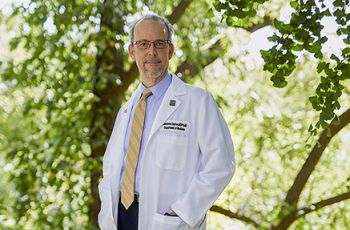
Dominic Raj, MD, professor of medicine at the George Washington University (GW) School of Medicine and Health Sciences, and his research team have received a research grant of more than $200,000 from Relypsa, a Vifor Pharma Group company, to investigate a therapy for hyperkalemia. Relypsa is a biopharmaceutical company focused in polymer-based medicines for undertreated conditions.
The grant will support an investigation into the role of the gut microbiome in potassium homeostasis in patients with end-stage renal disease (ESRD) and hyperkalemia.
Hyperkalemia is one of the most common complications in patients on dialysis and can result in cardiac arrhythmias, and in some cases, skeletal muscle paralysis. It is a common cause of death in patients with ESRD.
Nephrologists will typically treat patients with resins to bind the potassium and restrict a patient’s diet to foods not high in potassium content as a measure of preventing hyperkalemia.
“Acutely lowering serum potassium by dialysis could be harmful and lead to sudden cardiac death,” Raj explained.
Typically, the gut is responsible for only 5 percent of potassium excretion; however, in patients with ESRD, it can account for about 30 percent. Raj and his team are using patiromer, a product made by Relypsa, to bind potassium and remove it from the body.
Ongoing research in Raj’s laboratory is examining the change in microbiome profile and its consequence on the health of patients with kidney disease. In this study, they will determine the impact of lowering potassium levels using patiromer on the gut microbiome.
The goal for this research is to determine if it is possible to develop a more natural microbiome-based therapy to help prevent hyperkalemia in patients on dialysis.
“We want to see if, by giving patiromer to patients on dialysis, we can artificially reduce their risk of becoming hyperkalemic and see if the microbiome profile and their metabolic function changes with it,” said Raj.
The study will pull from resources at GW and from the larger community of nephrologists across Washington, D.C., Maryland, and Virginia.


